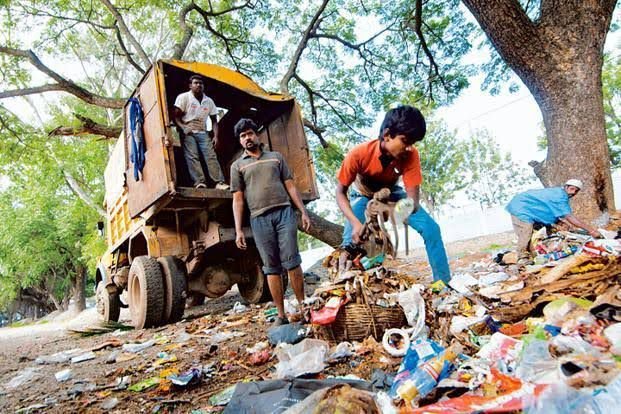Indian startups seeing ‘Cash in Trash’

The India Waste Management Market is witnessing substantial growth, with its size estimated at USD 12.90 billion in 2024 and projected to reach USD 17.30 billion by 2029, reflecting a Compound Annual Growth Rate (CAGR) of 6.10% during the forecast period (2024-2029) according to Mordor Intelligence Report. This surge is driven by India’s high population density and burgeoning industrial activities, which generate significant volumes of both hazardous and non-hazardous waste.
Current State of Waste Management
India’s waste management landscape is under significant strain due to rapid urbanization and industrialization. The country produces over 62 million tons (MT) of waste annually, yet only 43 MT is collected, and a mere 12 MT is treated before disposal, leaving 31 MT improperly discarded. Projections by the Central Pollution Control Board (CPCB) indicate that waste generation will escalate to 165 MT annually by 2030.
Despite these challenges, the concept of a circular economy, which emphasizes recycling and reusing materials, is gaining traction. Currently, only 30% of the 75% of recyclable waste is recycled, highlighting a significant opportunity for improvement. Inadequate policies and infrastructure further complicate waste management efforts, underscoring the need for comprehensive reforms and investments.
Innovative Startups Leading the Way
The Indian waste management sector is ripe for innovation, and numerous startups are emerging with novel solutions to tackle the mounting waste crisis. These startups focus on converting waste into valuable resources and developing efficient waste management practices.
WeVOIS: A Success Story
One notable example is WeVOIS, a Jaipur-based startup that has secured USD 4 million in pre-Series A funding at a valuation of USD 10 million. WeVOIS has positively impacted over 2.5 million people across 18 cities, including Jaipur, Dehradun, Sikar, Gwalior, and Jaisalmer. The company achieved an impressive 250% year-on-year growth and a 60% increase in customer acquisition within the last six months, maintaining a zero churn rate since its inception. This success underscores the potential for scalable waste management solutions in India.
Bintix: Pioneering Waste Traceability
Another innovative initiative is Bintix, launched in Chennai in August 2020. Bintix began by serving 100 households and now caters to over 2,000, collecting 8,500 kg of waste monthly. The startup provides households with barcoded bags to ensure waste traceability, enhancing the efficiency and transparency of waste collection processes. This model not only improves collection rates but also encourages household participation in waste segregation.
Government Initiatives and Future Prospects
The Indian government is actively promoting waste management through initiatives like the Swachh Bharat Initiative, which aims to enhance waste collection and management practices. This flagship program provides significant growth opportunities for startups focusing on innovative waste management solutions, particularly for electronic and biomedical waste.
Furthermore, the government is encouraging municipal bodies to partner with the private sector to establish sustainable waste management systems. This collaboration is crucial for addressing the escalating waste generation driven by increased manufacturing and domestic consumption.
India’s waste management market holds immense potential for growth and innovation. With an increasing population and rapid urbanization, the need for efficient and sustainable waste management practices is more critical than ever. Startups like WeVOIS and Bintix demonstrate the potential for innovative approaches to transform waste management in India.
As the market continues to grow, collaborative efforts between the government, private sector, and innovative startups will be essential to overcoming challenges and capitalizing on the opportunities within this burgeoning industry. The future of waste management in India lies in embracing a circular economy and leveraging technological advancements to create a cleaner, more sustainable environment.





